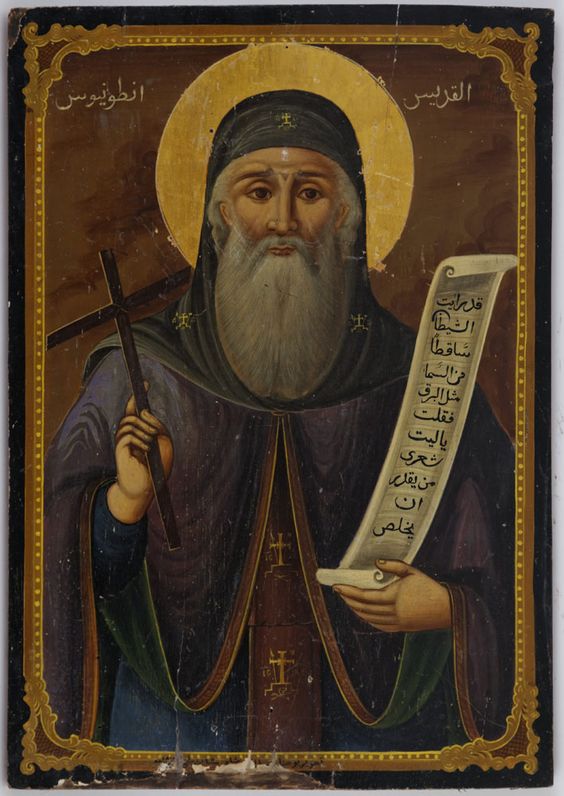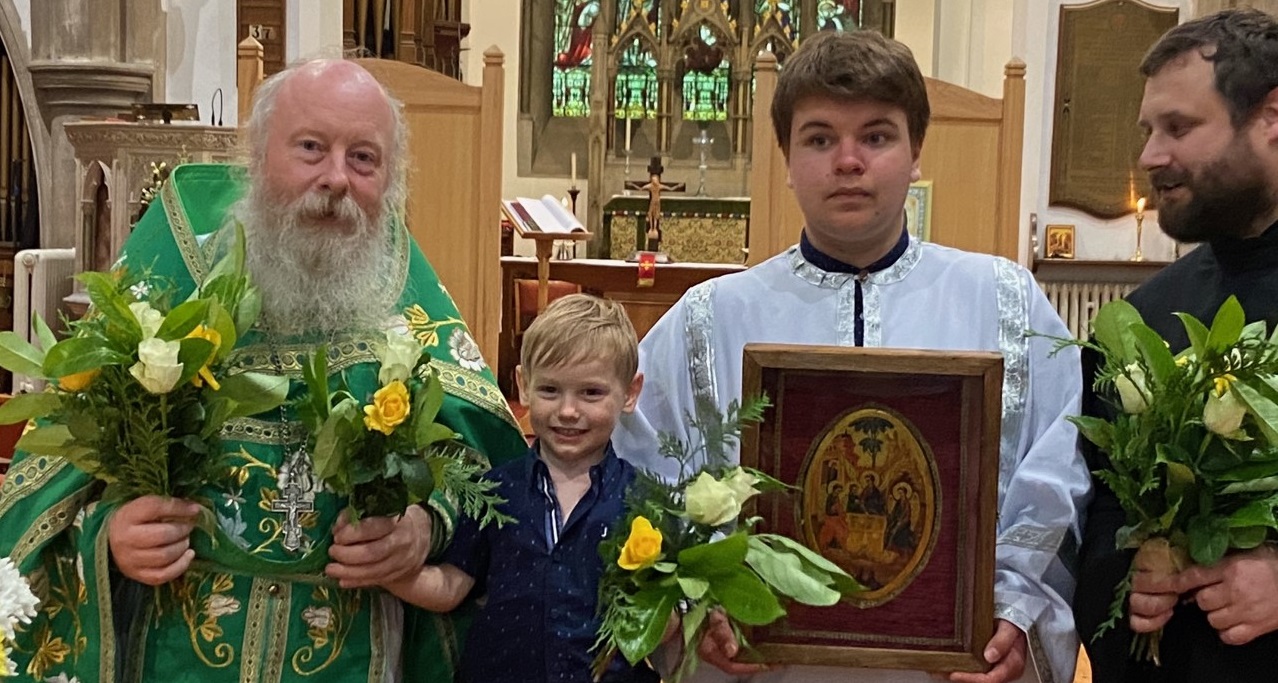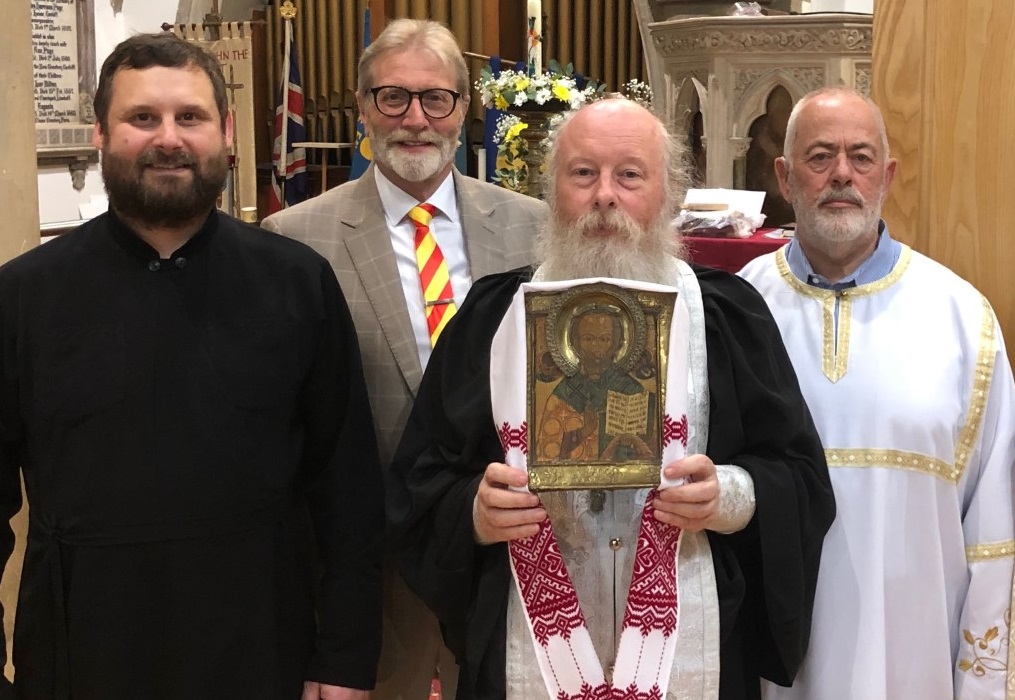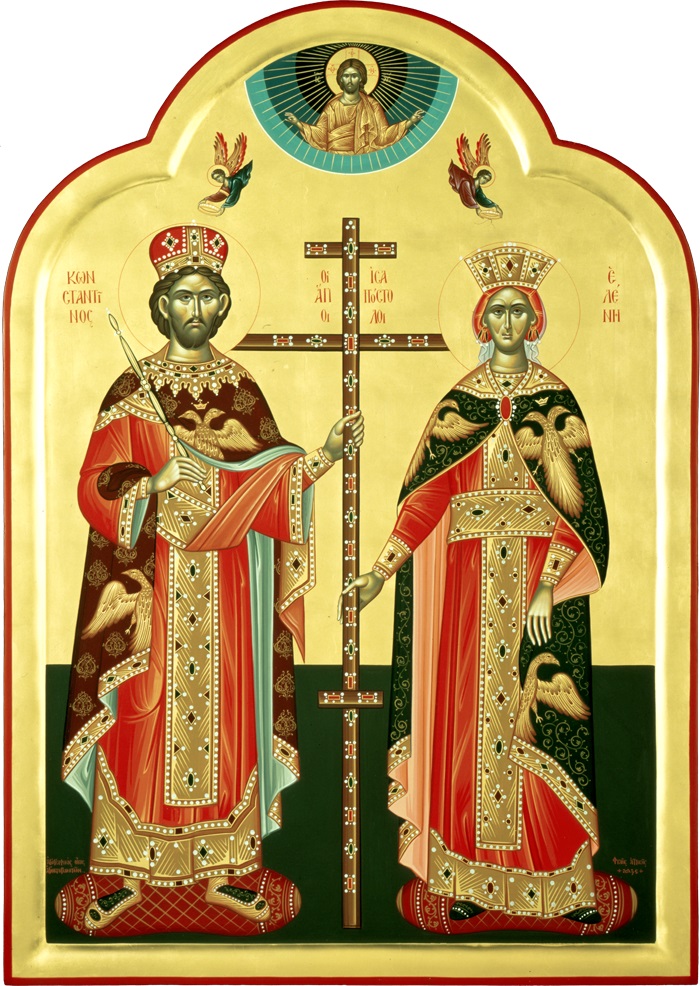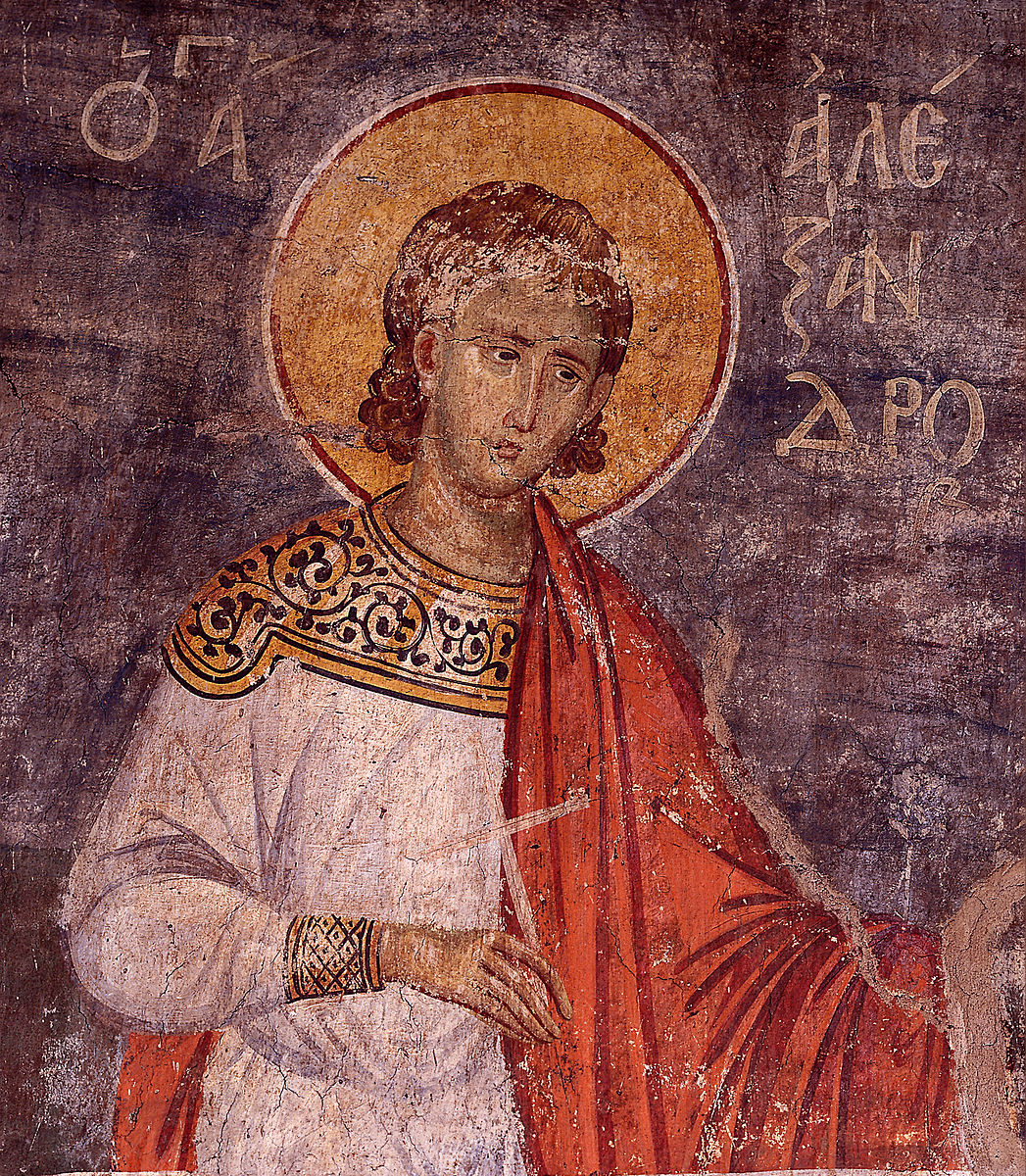Commemorated on May 27 / June 9
The Holy Confessor John the Russian was born in Little Russia around 1690, and was raised in piety and love for the Church of God. Upon attaining the age of maturity he was called to military service, and he served as a simple soldier in the army of Peter I and took part in the Russo-Turkish War. During the Prutsk Campaign of 1711 he and other soldiers were captured by the Tatars, who handed him over to the commander of the Turkish cavalry. He took his Russian captive home with him to Asia Minor, to the village of Prokopion.
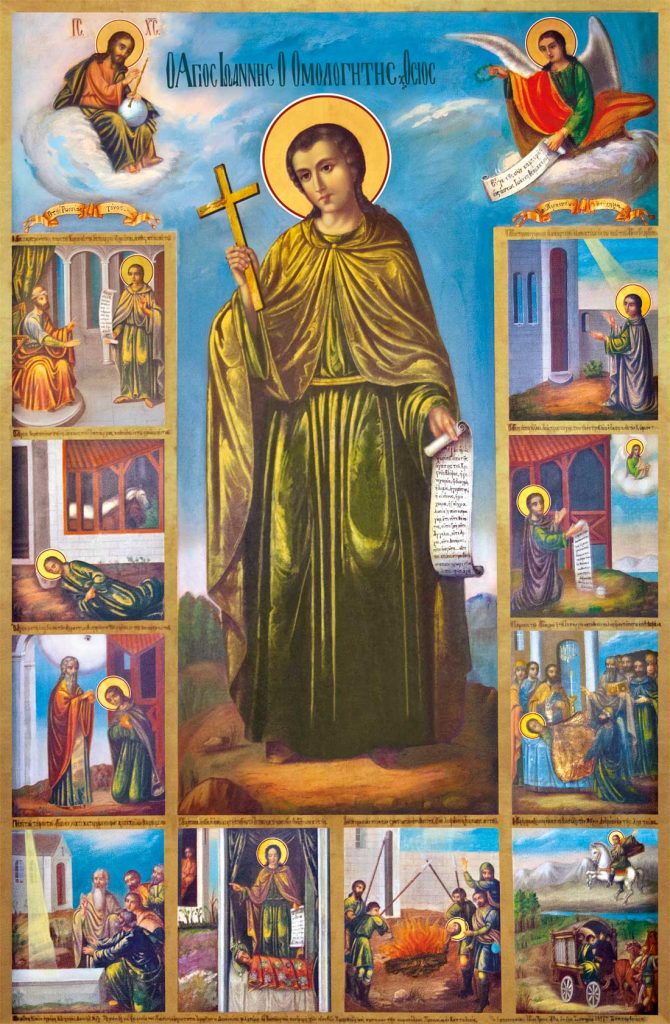 The Turks tried to convert the Christian soldiers to the Moslem faith with threats and flattery, but those who resisted were beaten and tortured. Some, alas, denied Christ and became Moslems, hoping to improve their lot. Saint John was not swayed by the promise of earthly delights, and he bravely endured the humiliation and beatings.
The Turks tried to convert the Christian soldiers to the Moslem faith with threats and flattery, but those who resisted were beaten and tortured. Some, alas, denied Christ and became Moslems, hoping to improve their lot. Saint John was not swayed by the promise of earthly delights, and he bravely endured the humiliation and beatings.
His master tortured him often in the hope that his slave would accept Islam. Saint John resolutely resisted the will of his master saying, “You cannot turn me from my holy Faith by threats, nor with promises of riches and pleasures. I will obey your orders willingly, if you will leave me free to follow my religion. I would rather surrender my head to you than to change my faith. I was born a Christian, and I shall die a Christian.”
Saint John’s bold words and firm faith, as well as his humility and meekness, finally softened the fierce heart of his master. He left John in peace, and no longer tried to make him renounce Christianity. The saint lived in the stable and took care of his master’s animals, rejoicing because his bed was a manger such as the one in which the Savior was born.
From morning until late evening the saint served his Turkish master, fulfilling all his commands. He performed his duties in the winter cold and summer heat, half naked and barefoot. Other slaves frequently mocked him, seeing his zeal. Saint John never became angry with them, but on the contrary, he helped them when he could, and comforted them in their misfortune.
The saint’s kindness and gentle nature had its effect on the souls of both the master and the slaves. The Agha and his wife came to love him, and offered him a small room near the hayloft. Saint John did not accept it, preferring to remain in the stable with the animals. Here he slept on the hay, covered only by an old coat. So the stable became his hermitage, where he prayed and chanted Psalms.
Saint John brought a blessing to his master simply by living in his household. The cavalry officer became rich, and was soon one of the most powerful men in Prokopion. He knew very well why his home had been blessed, and he did not hesitate to tell others.
Sometimes Saint John left the stable at night and went to the church of the Great Martyr George, where he kept vigil in the narthex. On Saturdays and Feast days, he received the Holy Mysteries of Christ.
During this time Saint John continued to serve his master as before, and despite his own poverty, he always helped the needy and the sick, and shared his meager food with them.
One day, the officer left Prokopion and went to Mecca on pilgrimage. A few days later, his wife gave a banquet and invited her husband’s friends and relatives, asking them to pray for her husband’s safe return. Saint John served at the table, and he put down a dish of pilaf, his master’s favorite food. The hostess said, “How much pleasure your master would have if he could be here to eat this pilaf with us.” Saint John asked for a dish of pilaf, saying that he would send it to his master in Mecca. The guests laughed when they heard his words. The mistress, however, ordered the cook to give him a dish of pilaf, thinking he would eat it himself, or give it to some poor family.
Taking the dish, Saint John went into the stable and prayed that God would send it to his master. He had no doubt that God would send the pilaf to his master in a supernatual manner. The plate disappeared before his eyes, and he went into the house to tell his mistress that he had sent the pilaf to his master.
After some time, the master returned home with the copper plate which had held the pilaf. He told his household that on a certain day (the very day of the banquet), he returned from the mosque to the home where he was staying. Although the room was locked, he found a plate of steaming pilaf on the table. Unable to explain who had brought the food, or how anyone could enter the locked room, the officer examined the plate. To his amazement, he saw his own name engraved on the copper plate. In spite of his confusion, he ate the meal with great relish.
When the officer’s family heard this story, they marveled. His wife told him of how John had asked for a plate of pilaf to send to his master in Mecca, and how they all laughed when John came back and said that it had been sent. Now they saw that what the saint had said was true (Compare the story of Habakkuk, who miraculously brought a dish of pottage to Daniel in the lions’ den [Dan. 14:33-39], in the Septuagint).
Toward the end of his difficult life Saint John fell ill, and sensed the nearness of his end. He summoned the priest so that he could receive Holy Communion. The priest, fearing to go to the residence of the Turkish commander openly with the Holy Gifts, enclosed the life-giving Mysteries in an apple and brought them to Saint John.
Saint John glorified the Lord, received the Body and Blood of Christ, and then reposed. The holy Confessor John the Russian went to the Lord Whom he loved on May 27, 1730. When they reported to the master that his servant John had died, he summoned the priests and gave them the body of Saint John for Christian burial. Almost all the Christian inhabitants of Prokopion came to the funeral, and they accompanied the body of the saint to the Christian cemetery.
Three and a half years later the priest was miraculously informed in a dream that the relics of Saint John had remained incorrupt. Soon the relics of the saint were transferred to the church of the holy Great Martyr George and placed in a special reliquary. The new saint of God began to be glorified by countless miracles of grace, accounts of which spread to the remote cities and villages. Christian believers from various places came to Prokopion to venerate the holy relics of Saint John the Russian and they received healing through his prayers. The new saint came to be venerated not only by Orthodox Christians, but also by Armenians, and even Turks, who prayed to the Russian saint, “Servant of God, in your mercy, do not disdain us.”
In the year 1881 a portion of the relics of Saint John were transferred to the Russian monastery of the holy Great Martyr Panteleimon by the monks of Mount Athos, after they were miraculously saved by the saint during a dangerous journey.
Construction of a new church was begun in 1886, through the contributions of the monastery and the inhabitants of Prokopion. This was necessary because the church of the holy Great Martyr George, where the relics of Saint John were enshrined, had fallen into disrepair.
On August 15, 1898 the new church dedicated to Saint John the Russian was consecrated by the Metropolitan John of Caesarea, with the blessing of the Ecumenical Patriarch Constantine V.
In 1924, an exchange of the populations of Greece and Turkey took place. Many Moslems moved out of Greece, and many Christians moved out of Turkey. The inhabitants of Prokopion, when they moved to the island of Euboia, took with them part of the relics of Saint John the Russian.
For several decades the relics were in the church of Saints Constantine and Helen at New Prokopion on Euboia, and in 1951 they were transferred into a new church dedicated to Saint John the Russian. Thousands of pilgrims flocked here from all the corners of Greece, particularly on his Feast, May 27. Saint John the Russian is widely venerated on Mount Athos, particularly in the Russian monastery of Saint Panteleimon.
Saint John’s help is sought by travelers, and by those transporting things.
Source: https: www.oca.org
